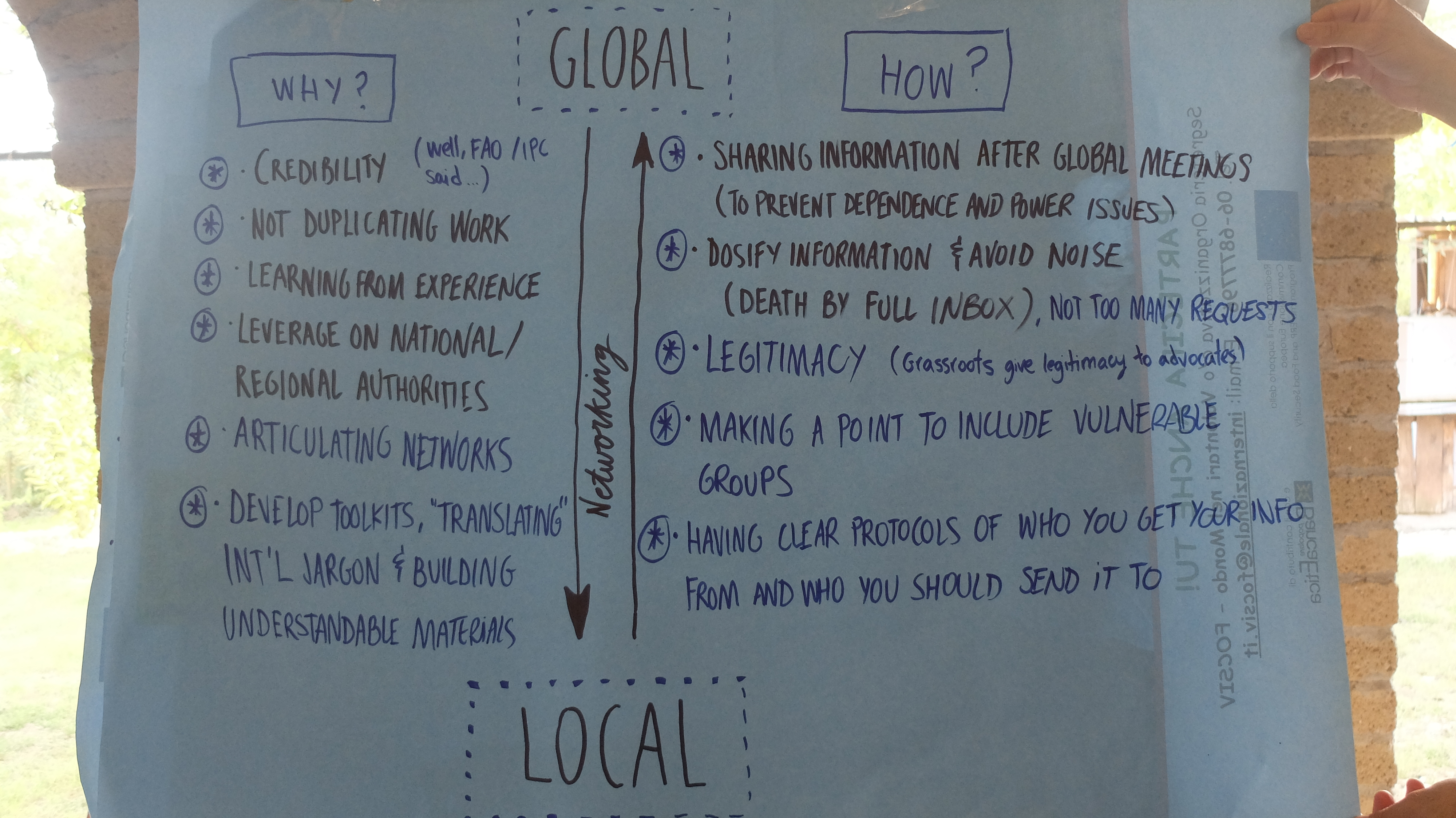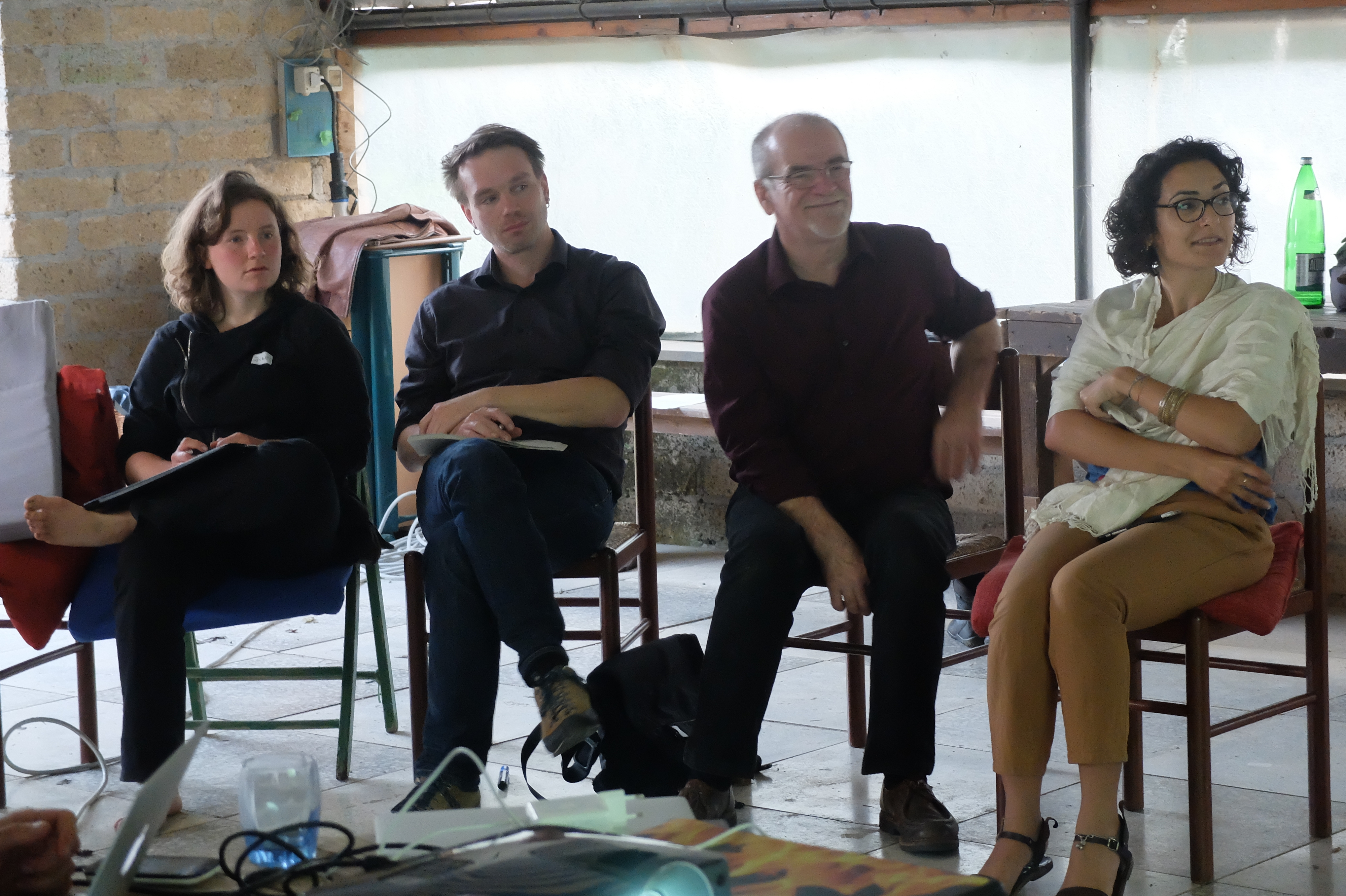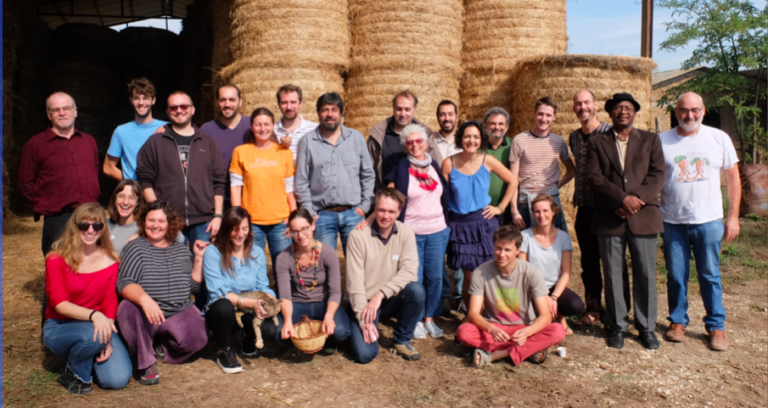By the Voices project team, Rome, 13th October 2018.
Photo credit: Jule Hesse.
Urgenci’s advocacy capacity is central to strengthening the role of the Community supported Agriculture (CSA) movement at local and global level. As a global social movement, the CSA and theirs networks need to work collectively to show how they contribute to overcoming global challenges to the food system. This is why Urgenci has launched a project to build collective advocacy strategy throughout our European member networks. It addresses one of the key objectives that were set by the 6th Urgenci International Conference in Beijing in 2015.
The project’s kick off meeting was hosted by the Schola Campesina in Biodistretto della Via Amerina e delle Forre, 50 kilometers from Rome. As Andrea Ferrante, who coordinates the Schola said “The Schola Campesina was created in 2017 as an international agroecology school for collective knowledge building and sharing for food sovereignty, focusing on global governance of food and agriculture. The relationship established with Urgenci strengthens the role of the Schola Campesina to support social movements in our collective struggles at global and local level”.

CSA is a new model for short supply chains and solidarity-based agriculture and economy. It is necessary to see this in a wider context as a key part of building sustainable food systems.”
The first day of the meeting was dedicated to collective knowledge sharing on the role of social movements within the Rome-based UN Agencies, the history, articulation and work of the Committee on World Food Security and Nutrition (CFS) and Civil Society Mechanism (CSM of the CFS, and the critical importance of the International Planning Committee for Food Sovereignty (IPC) in bringing social movements together as a platform to strategize and build collective advocacy positions. According to Veikko Heinz, member of the Council and Steering Committee of Solawi, Germany, this is highly relevant because “CSA is a new model for short supply chains and solidarity-based agriculture and economy. It is necessary to see this in a wider context as a key part of achieving the Sustainable Development Goals (SDG) and building sustainable food systems.” There was rich input from Emily Mattheisen from FIAN on all the issues of global governance.
The second day focused on practical testimonies from two experienced leaders of the Food Sovereignty movement. Javier Sanchez from COAG, the Via Campesina member in Spain, and Ibrahima Coulibaly president of the CNOP, the family farmers’ union in Mali. Ibrahima Coulibaly contributed on the peasant’s advocacy in Mali to create a law on agriculture and land tenure: “The only way to solve the problems in today’s world is to focus on the human rights aspects. It is essential that all people in all countries have the right to a dignified life, and are not deprived of the resources that allow them to feed themselves and their fellow citizens”.

Isa Alvarez, the current CSM Coordination Committee member representing Urgenci in the consumers’ constituency, and Urgenci’s advocacy officer, presented experiences from the ground and CSM policy. She underlined the essential nature of this project because ”we need a group of people who perceive the importance of advocacy at all levels, from local to global and who are interested in building alliances as a collective Urgenci advocacy team.” Elene Shatberashvili from Georgia and Kannaiyan Subranamiam from India also shared their hands-on experience in the CSM Coordination Committee.
On Saturday and Sunday the group of 25 Urgenci members from 9 different European countries will join the Civil Society Forum in Rome, at the FAO Headquarters building. This is the annual meeting of all groups involved in the CSM policy-building processes.
As Sodeh Hamzehlouyan, co-president of the AMAP Ile de France said about this first of four meetings “this experience will allow us to create more efficient connections between our grassroots advocacy and what Urgenci is doing at international policy level”.
The project “Voices for CSA” is funded by the EU programme Erasmus+.


